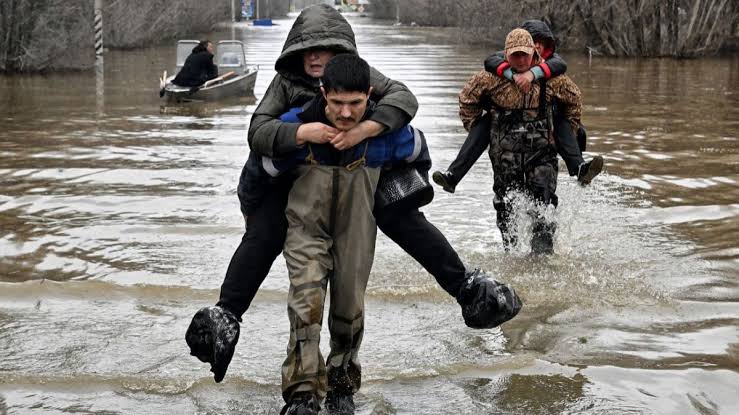Mayor declares ‘mass evacuations’ in Orenburg as flooding reaches critical levels

The city of Orenburg in Russia witnessed a surge in flood-related emergencies on Friday, prompting Mayor Sergei Salmin to declare “mass evacuations” as the Ural river’s water level surged. The alarming rise in temperatures, accelerating snow and ice melting, combined with torrential rains, has triggered overflow in several major rivers traversing both Russia and Kazakhstan.
Mayor Salmin urgently notified residents via Telegram, stating, “Sirens are sounding in the city. This is not an exercise.” He emphasized the critical nature of the situation, urging immediate evacuation from multiple districts within the city. Orenburg, a regional capital with a populace of approximately 550,000, finds itself grappling with the mounting water levels.

Providing insight into the escalating crisis, Salmin revealed that the Ural river experienced a staggering 40-centimeter (15.7 inches) surge within a span of 10 hours, labeling the situation as perilous. Reports indicate that over 2,500 houses in Orenburg have been impacted, alongside nearly 5,000 allotments. State media images depict submerged streets, including an iconic monument marking the Europe-Asia border, accentuating the severity of the inundation.
Meanwhile, in Western Siberia, authorities in the Tyumen region have alerted residents to the dangerously rising levels of the Ishim river. Projections suggest that the Ishim and Tobol rivers will crest between April 23-25. Sergey Balykin, a regional official, cautioned that Orenburg’s peak flood levels are expected imminently, by Friday or Saturday.
In response to the crisis, Russia has evacuated over 10,000 individuals from the Orenburg region, with additional evacuations occurring in villages within the Kurgan and Tomsk regions. While conditions in Orsk have shown signs of improvement following a breached dam, neighboring Kazakhstan has evacuated upwards of 96,000 people, with Petropavlovsk bracing for potential inundation.
Though no direct correlation has been established between these floods and global warming, experts highlight the role of elevated planetary temperatures in exacerbating weather patterns, leading to intense rainfall responsible for the current flooding events. As both nations continue to grapple with the aftermath, concerted efforts remain underway to mitigate further risks and safeguard affected populations.














